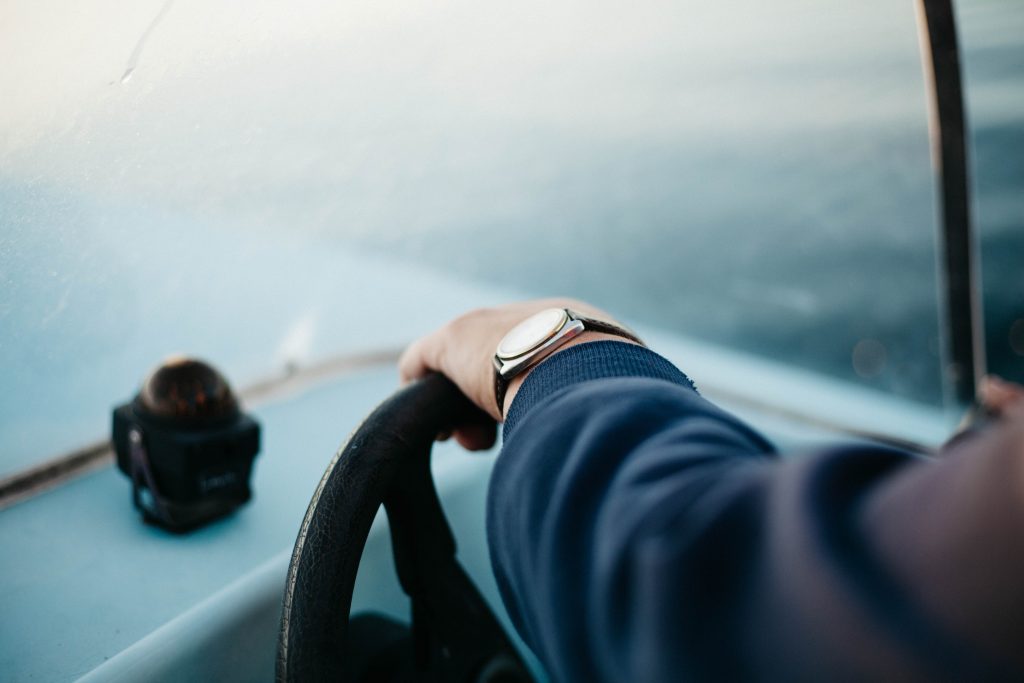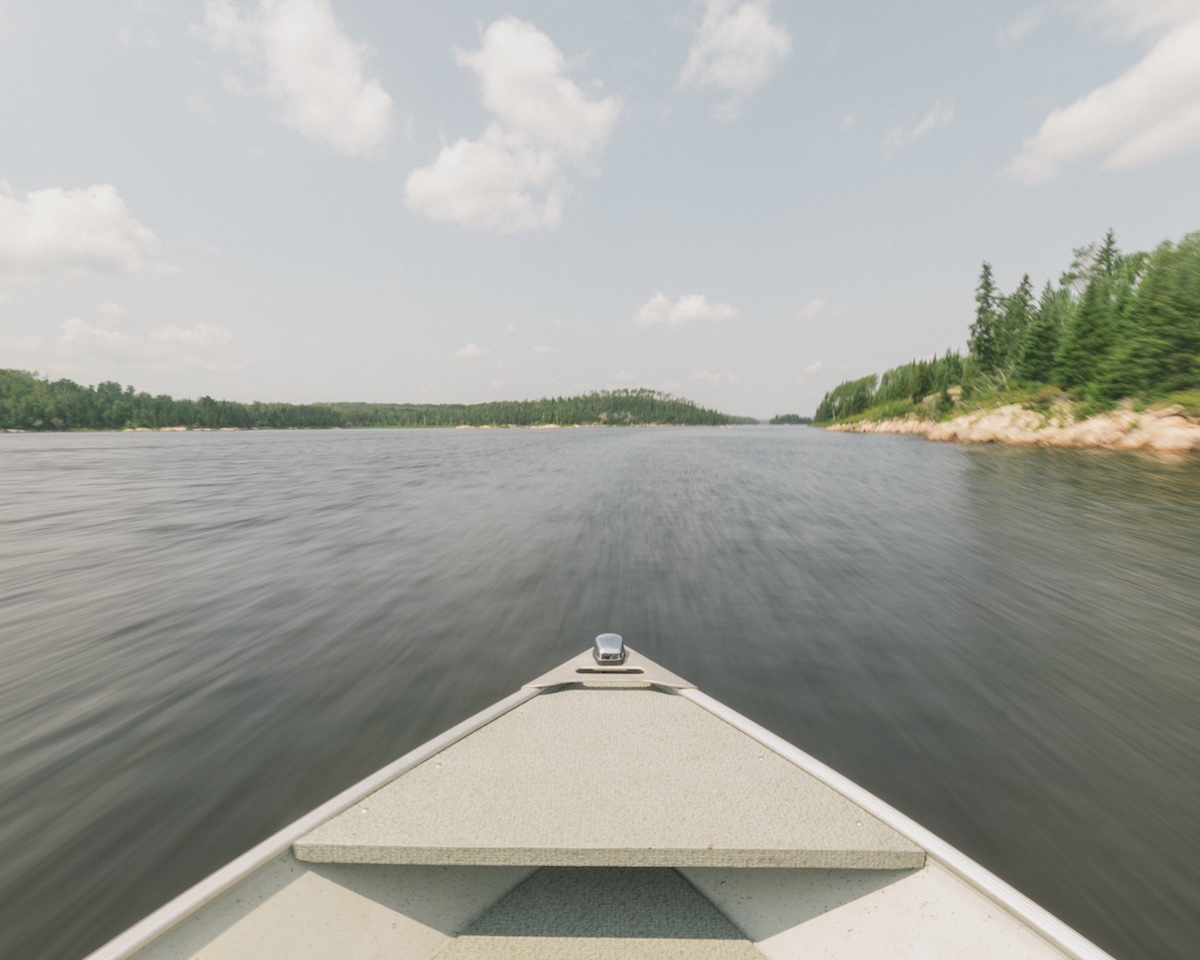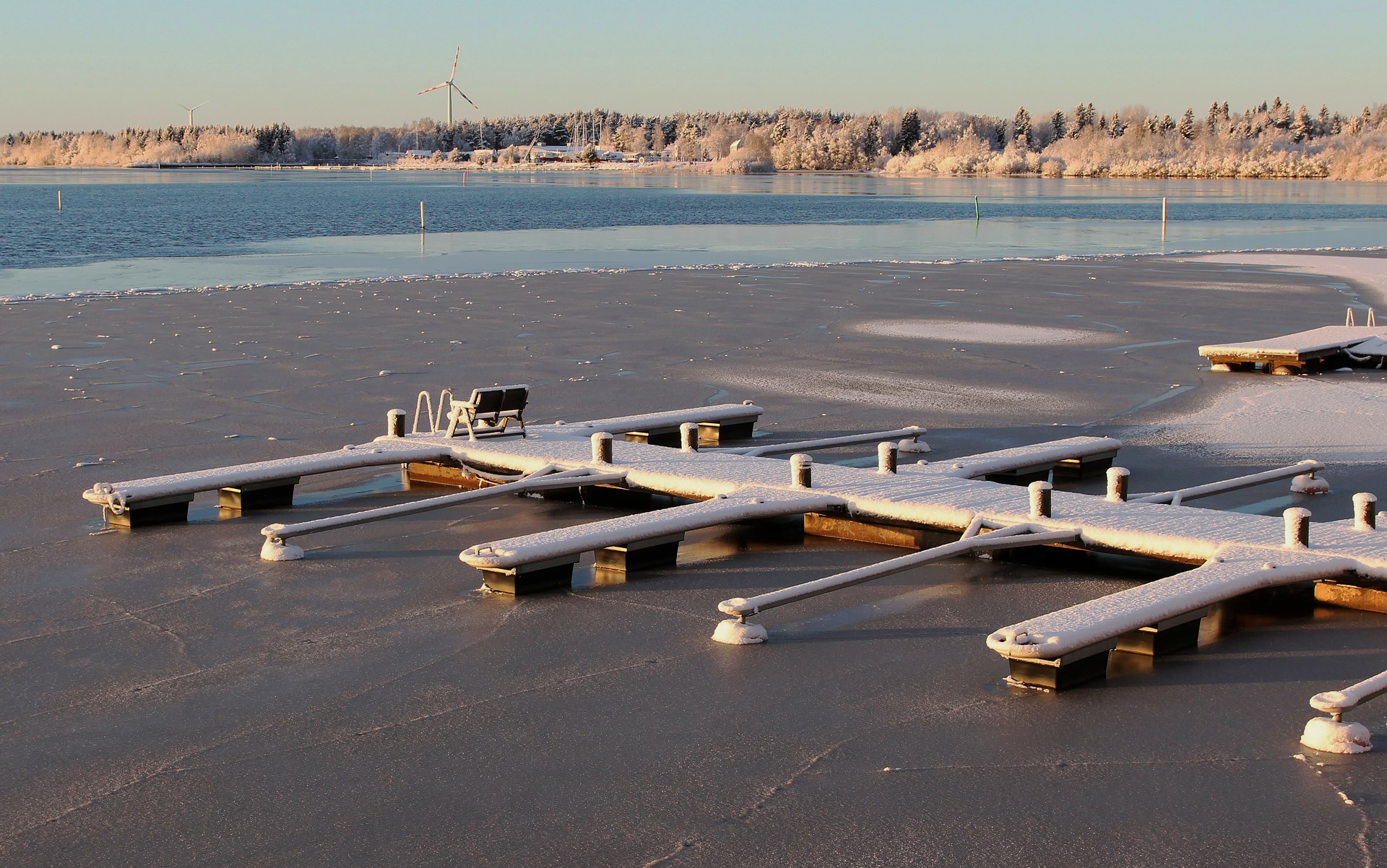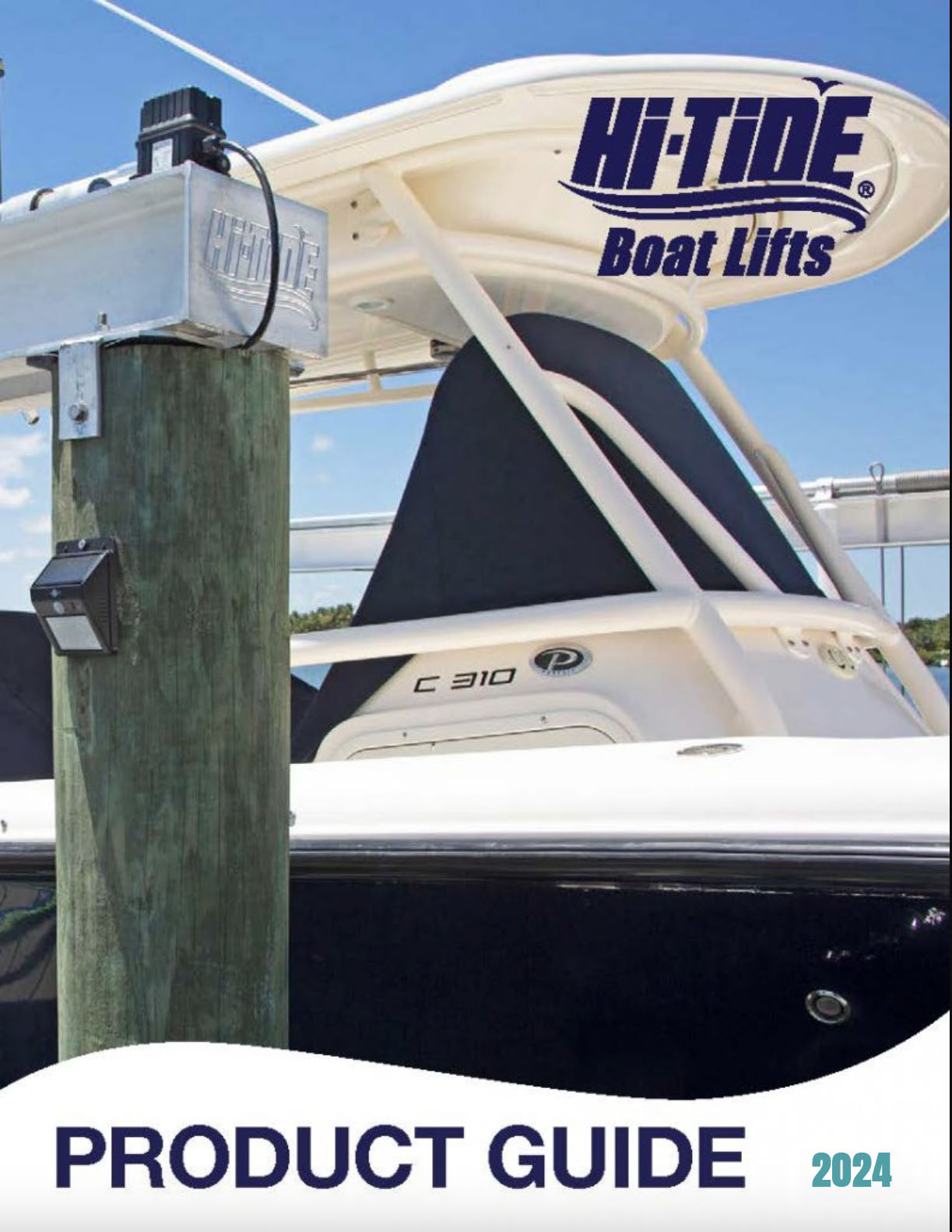
Shopping for a used vehicle is a fairly run-of-the-mill process for most people. You go do a dealership, give the vehicle a lookover, maybe take it for a test drive, perhaps call a mechanic for a quick inspection and settle on a price. What many people don’t have quite as much experience with is buying a used boat. So, if you find a used boat that seems like a steal, what should you do to make sure it’s not a money pit in the making? We’ve got a few tips that may be just what you need.
Tips to Consider Before Buying a Used Boat
- Start Your Engines: Do not buy a boat if the seller doesn’t first let you start the motor(s). A lot can be learned from simply seeing how an engine or motor turns over and idles. Is there smoke? Excessive shaking or noise? Does it take a few tries to get started? All can be signs of engine trouble (but are not necessarily dealbreakers).
- Check the Oil: The condition of boat’s oil can be a great barometer for how the engine is performing. If it appears overly dark, gritty or even watered down, you may want to investigate further.
- Inspect the Electronics: Rewiring can be a pain, and faulty electronics can lead to serious fire or electrocution risks. Be sure that there are no signs of melted, burned or frayed wires before putting your money down.
- Look for Damage: This one may seem a bit basic, but any visual signs of hull cracking or water damage on the deck should be closely inspected to ensure they’re easy fixes or simply cosmetic issues. Be wary of boats that have a history with collisions, as they may have serious damage hidden just below the surface.
- Ask an Expert: Just like with used cars, when in doubt, ask an expert to provide an inspection. You may not be a boat mechanic, but especially if anything doesn’t seem quite right about the vessel, you should absolutely ask a professional to come in and provide insight that you wouldn’t have otherwise.
By testing the engine, checking the oil, inspecting electronics and wiring, looking for damage and calling in an expert, you can buy a used boat with a bit more confidence. Rule of thumb, however, if you’re unsure about the boat, it’s probably not worth the risk of buying a lemon. Happy hunting and we hope to see you on the water soon!
With New Year’s resolution season in full swing, you may be planning to put in work at the gym, start healthier eating habits or commit to reading more books. Though all of those resolutions are great, boaters might want to put a little thought into making 2019 a better year on the water as well.
That’s where we come in, friends. Here are our boating tips and resolutions you may want to keep coming into the new year. We promise, zero gym time is required.
Boating Tips and Resolutions for 2019
- Keep it Clean: Don’t be trashy. Though it may be tempting to simply discard your snack wrappers, plastic bags, cans and bottles overboard, doing so immediately damages the environment and puts the sea life you share waters with at risk. Keep a garbage bag onboard and dispose of your trash responsibly once back ashore.
- Make a List and Check it Twice: Lists aren’t only for Santa. Making a six-month or quarterly checklist for your boat maintenance can go a long way to ensure smooth sailing all year long.
- Be Storm-Ready: Before next hurricane season begins, get your plan in place. Though current meteorology often gives us a little more time to react before landfall, hurricanes are still wildly unpredictable. Having a plan in place to secure your vessel and evacuate will help avoid panic and keep you safe.
- Boat Somewhere New: Though we all have our favorite spots, make a resolution to explore new waters. Do some research and stay safe, but enjoy a little adventure on your next trip.
-
Boat More Often: Look, this may sound like a bad excuse to have more fun…and it kind of is. Life is short and times can be hard, but make sure you save some time to kick back and enjoy this hobby, passion and lifestyle we all love.
With a new year and new you, why not make now the time you commit to keeping waterways clean, making a safety and maintenance checklist, creating a hurricane plan, trying out a new waterway and boating more often in 2019? We promise all of these resolutions are easier to keep than that all-kale diet or spinning class you just enrolled in. From all of us at Hi-Tide Boat Lifts, may your 2019 be full of fun on the water!
There are a few rare creatures that are so wonderfully strange that they almost defy logic. Australia has the duck-billed platypus and Florida has the majestic sea cow. Though they may not be much to look at (no offense), manatees are nonetheless a highly protected, wholly unique resident of many of the Sunshine State’s waterways. Unfortunately, these docile, aquatic mammals are often at risk due to careless boaters. So, what manatee safety tips should you practice on your next trip? We have a few ideas that could protect you and those loveable sea cows.
Manatee Safety Tips
- Look for the Signs: Follow all posted signs and warnings, including low wake zones, speed limits and manatee zones.
- Keep an Eye Out: Manatees can be tough to spot. If possible, designate someone onboard to be the lookout while you maneuver your vessel.
- Avoid Seagrass: Manatees can often be found grazing in beds of seagrass, so avoiding these areas altogether can keep you from a potential collision.
- Look Before Starting Your Motor: If you cut your motor, be sure to check around your vessel before engaging your propeller, as manatees are known to investigate boats.
- Keep Your Trash to Yourself: Littering in our waterways can injure or even kill manatees and other wildlife. Keep your garbage onboard until you get back ashore and can dispose of it appropriately.
- Do Not Touch: As huggable as they may look, you must resist the urge to touch and directly interact with manatees. Feeding and petting manatees will lead to them growing too accustomed to human interaction. This may lead to them seeking out humans and getting hurt in the process.
- Report Injuries Immediately: In the unfortunate case that your vessel collides with or clips a manatee, do not panic. Immediately call the Florida Fish and Wildlife Conservation Commission at 1-888-404-FWCC (3922) and alert them to the location of the injured animal. Time is of the essence. https://www.youtube.com/watch?v=cZuKv8FRz-g
With low reproduction rates, manatee safety is important to keep in mind when enjoying Florida’s many wonderful waterways. Keep an eye out for these gentle giants and do your part to keep our waterways clean and safe for everyone we share them with.

If there’s a body of water, chances are there will be a boating enthusiast just itching to get out on it. From the vast and often unpredictable waters of the open ocean to placid lakes and rushing rivers, there are plenty of uniquely interesting ways to hit the water. However, before a frequent river cruiser decides to hit the Atlantic for the first time or a deep sea fisherman tries his luck in a lake, it’s important to identify a few important differentiators and uncover some helpful boating tips specific to each body of water.
On the Ocean
There is nothing quite like the open ocean. From crashing waves to the unmistakable scent of saltwater in the air, this kind of boating can be truly invigorating, exciting and relaxing if the weather plays along. Unlike boating on freshwater, unless in the extreme cold, oceans do not freeze over in winter months. However, dangers like massive waves, tidal changes and the isolation of the open ocean must be considered before taking it on. Always ensure you have the adequate emergency equipment, including locator beacons and PFDs. Unlike smaller lakes and rivers, if you are forced to abandon ship in the ocean, you often can’t simply swim to shore.
On a Lake
Lakes are often placid and more predictable than the open ocean, especially smaller lakes. As another benefit, freshwater is far less corrosive and damaging to your vessel and its engine components. However, due to the limited size of most lakes, they can become a bit crowded in the spring and summer, while freezing over in winter months. Just make sure your boat isn’t at risk of running aground, as some lakes are more shallow than you may anticipate.
On a River
Rivers are essentially boating roadways, allowing travel through various regions of the U.S. with beautiful sights and sounds all around you. Rivers are also frequently used for water sports. The downside? Unless you’re going downstream, you may need a powerful motor to fight against the potentially strong current. Another concern is the depth of the river. Many rivers are quite shallow, so your mega yacht may not make it far. Like lakes, rivers also may freeze over in colder months. Smaller, flat-bottomed vessels equipped for shallower waters are recommended here.
Regardless of your preference, boating, fishing and simply spending a day on the water is what it’s all about to us. Oceans are vast and unpredictable, lakes are smaller but more placid, and rivers are shallow but often scenic. Take your pick, but always remember to do your research and, as always, keep safety your priority when hitting the water.
Information Cited: https://www.getmyboat.com/resources/tips-for-renters/468/boating-on-rivers-lakes-and-oceans

Though winter is full of the holly jolly fun of the holidays, for our friends up North, it also brings something a little less cheery—ice-cold temperatures. Sure, you can bundle up, crank up the heater and throw some logs in the fireplace, but what about your boat and dock? If you hope to keep your vessel afloat come spring, there are a few key things you need to do. Luckily, winterizing your boat and dock is simple with this handy checklist.
Winterizing Your Boat and Dock Before the Big Freeze
- Keep it Clean: Many boaters don’t take their boats out as often in the winter months, especially during the coldest months of the season. Before you take your boating break, be sure to clear your ship of any food on board, deep cleaning all lockers, storage areas and refrigerators or freezers you may not touch on the average trip.
- Check the Essentials: Fire extinguishers, life jackets, mooring gear and other important facets should be checked and replaced, if necessary, before your next outing. A professional tune-up and maintenance check is also never a bad idea.
- Think Tanks: During the cold winter months, it is vital that you fill your gas tank to about 95% capacity and add stabilizer to the tank. If you don’t, there is a major risk that the ethanol in your gasoline will absorb enough moisture in the cold to separate from the fuel, which can be deadly to your engine.
In addition, consider disinfecting holding tanks, then running antifreeze through them.
- Clean and Inspect Your Dock: Just like your boat, a seasonal inspection is vital to making sure your dock is ready to handle what winter has in store. Look, especially, for structural damage or weaknesses, as well as any debris that may keep your dock from rising and lowering as it’s supposed to.
Now is also the time to clean your deck, removing mold and grime and ensuring that it is properly repelling water.
Though cold waters don’t keep everyone from getting in their boating fix, for those who prefer spring and summer cruising, it is important to prep for a little aquatic hibernation by winterizing your boat and dock. Other than the above steps, simply keeping tabs on the weather, asking a neighbor to keep an eye out for you, or even scheduling a mid-winter checkup could go a long way towards keeping your ship safe until the sun can warm those waters again.
Us Floridians wish you luck.




